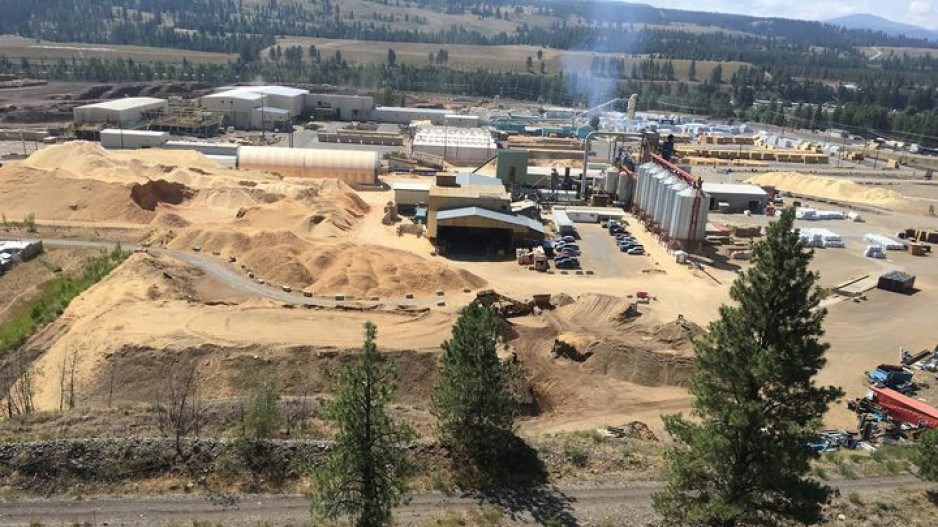Drax Group Plc (LON:DRX) has struck a deal to buy another wood pellet plant in B.C.
Drax today announced it has signed an agreement to buy a pellet plant owned by Princeton Standard Pellet Corp. When the deal closes sometime in the third quarter of this year, that will bring the total B.C. pellet plants Drax owns to eight.
The Princeton pellet plant produces about 90,000 tonnes of wood pellets annually, primarily from sawmill wood waste, and employs 32 people.
Drax is a British power company that has phased out coal at its power plant in North Yorkshire, England and now uses wood pellets for thermal power generation. Biomass is considered carbon neutral, since regrowing plants and trees eventually take up CO2.
Drax has been on a buying spree in recent years. Last year, it acquired Pinnacle Renewable Energy -- the largest pellet producer in Canada, with eight plants in B.C. and Alberta and one in Alabama.
“We look forward to welcoming the Princeton pellet plant team to Drax Group as we continue to build our global pellet production and sales business, supporting UK security of supply and increasing pellet sales to third parties in Asia and Europe as they displace fossil fuels from energy systems," Drax CEO Will Gardiner said in a press release.
"Drax’s strategy to become a world leader in sustainable biomass, supports international decarbonisation goals and puts Drax at the heart of the global, green energy transition.”
Drax's goal is to increase pellet production to 8 million tonnes a year by 2030. Drax also plans to add carbon capture and storage in its UK operations, which would mean the power it produces would be carbon negative.
Since 2012, Drax says it has reduced its emissions by 90% since 2012 by switching from coal to biomass. With the addition of carbon capture and storage, Drax says it would produce eight million tonnes of negative emissions annually.




